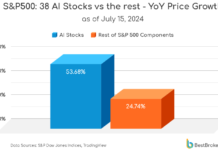
The cyber security services market size was valued at USD 208.3 Billion in 2023 and is projected to reach USD 445.3 Billion by 2032 at a CAGR of 8.8%.
The dynamic technology landscape is constantly molding the global threat scenario in cyberspace, compelling diverse entities to enhance their endeavors in pinpointing and mitigating potential weaknesses within their security infrastructures. The surge in cybercrimes and malware occurrences, especially within government, defense, and IT domains, has garnered considerable focus.
Additionally, the proliferation of cloud-based platforms and smartphone applications has exacerbated cybersecurity hurdles for organizations, prompting a reassessment of conventional security strategies. With threats multiplying and traditional security measures falling short, organizations are progressively resorting to outsourced security solutions to detect system vulnerabilities, thereby fueling the growth of the cybersecurity services market.
The increasing dependence on digital storage, facilitated by computers and cloud services, alongside the swift pace of technological progress, highlights the critical need to develop and implement secure systems capable of staying ahead of potential hacker threats. Furthermore, regulatory frameworks such as the General Data Protection Regulation (GDPR) mandate the rapid identification and reporting of cyberattacks within a 72-hour window, adding pressure on businesses to enhance their cybersecurity practices.
The widespread use of mobile devices and online platforms for financial transactions has notably amplified vulnerabilities, particularly in the banking, financial services, and insurance (BFSI) sectors. Consequently, stakeholders within BFSI are urged to embrace state-of-the-art and resilient cybersecurity measures to mitigate even the most sophisticated cyber threats.
Developing and executing robust cybersecurity incident response plans is not only crucial for stakeholders in the banking, financial services, and insurance (BFSI) sectors but also a fundamental aspect of survival. These plans empower them to adeptly handle cyberattacks as they unfold, safeguarding sensitive financial data and upholding trust among both customers and partners.
Segmentation Overview:
The global cyber security services market has been segmented into service, industry, and region.
Penetration Services Testing Segment Account for a Significant Market Share
The cybersecurity services market segmentation is based on service, which includes penetration testing, bug bounty, and managed detection response. In 2022, the demand for penetration testing services was high due to the professionalization of cybersecurity services.
IT and Telecom Services Segment to Register High Growth in Forthcoming Years
The cybersecurity services market segmentation is based on industry, which comprises BFSI, retail, IT and telecom. IT and telecom accounted for a significant share in 2022 and is projected to retain dominance in the coming years. The rise in digital assets and footprints contributes to growth factors. The emergence of startup culture in several industries has emphasized digital innovation in various fields.
Cyber Security Services Market Report Highlights:
- The global cyber security services market growth is anticipated at a CAGR of 8.8% by 2032.
- Technological advances and a rise in demand for digital security are expected to pivot industry developments in the coming years.
- North America remains a leading market for cybersecurity services in 2023 and is projected to attain a significant market share in the coming years. Demand for cybersecurity and innovative practices are major growth highlights in the U.S. market.
- Some prominent players in the cybersecurity services market report include McAfee, Symantec Corporation, FireEye Inc., Fortinet Inc., Sophos Group Plc, F-secure Corporation, Trend Micro Inc., SecureWorks Corporation, Kaspersky Lab, and IBM Inc..
These insights are based on a report on Cyber Security Services Market by DataHorizzon Research.

















